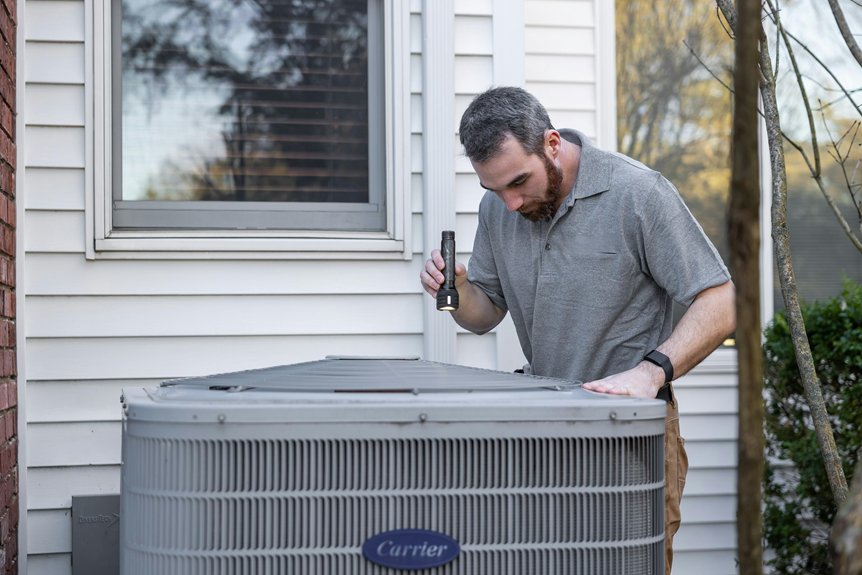HVACR technicians are responsible for the installation, maintenance, and repair of heating, ventilation, air conditioning, and refrigeration systems across a variety of buildings. Their salaries are influenced by factors such as experience, geographical location, and the specific industry in which they work. Typically, technicians in urban areas and industrial sectors can expect higher remuneration.
Acquiring certifications and specialised skills can significantly enhance earnings and create further opportunities for career advancement. As technicians develop their expertise, they may progress into supervisory or consultancy roles within the field.
Understanding salary trends and career development is crucial, particularly as regional differences can greatly affect earnings and job opportunities. By being aware of these factors, HVACR technicians can better navigate their professional journey in the UK.
Overview of Salaries in the HVACR Field
Salaries in the HVACR (Heating, Ventilation, Air Conditioning, and Refrigeration) sector in the UK can vary significantly based on experience, geographical location, and the specific industry. Entry-level technicians typically earn a competitive salary, which increases as they gain experience. Intermediate technicians see a rise in their earnings, while senior technicians command higher wages due to their expertise. Those in supervisory roles often enjoy even greater financial rewards. According to recent industry reports, Geography plays a crucial role in salary variations; certain regions, particularly metropolitan areas, tend to offer more generous remuneration compared to others. Additionally, industry-specific roles, especially in sectors like aerospace or natural gas distribution, often provide elevated salaries for specialised positions.
Factors That Influence Income Potential
Several key factors can influence how much an HVACR technician earns, with education, experience, and skills playing particularly important roles.
Formal training and certifications, such as NATE, HVAC Excellence, and EPA 608, help technicians validate their expertise and often lead to higher salaries. Experience is also crucial; technicians with significant work history, especially in complex systems, tend to earn more. Gaining diverse skills in areas like electrical work or smart systems can further enhance earning potential.
- The industry sector plays a vital role, with industrial roles generally offering higher remuneration compared to residential or commercial positions.
- Geographic location significantly affects wages, as high-demand areas within the UK often provide better pay.
- Employment type is another factor, with union jobs or specialised roles typically offering improved pay and benefits.
In addition, the presence of industry-recognized certifications can serve as a valuable asset during salary negotiations, leading to increased earning opportunities.]
These elements combined shape an HVACR technician’s earning potential across various markets and industries in the UK.
Career Advancement and Specialized Roles
As HVACR technicians gain experience, they often find opportunities to progress into mid-level roles with increased responsibilities. Positions such as service technicians or systems designers typically require several years of hands-on work and involve diagnosing and repairing more complex systems. Developing technical expertise is essential for taking on these advanced roles, which often require a deeper understanding of sophisticated equipment and systems.
Technicians can also advance their careers by specialising in areas like energy efficiency, indoor air quality, or smart technology, which can lead to higher-paying roles in emerging markets. Attaining additional certifications, such as NATE or HVAC Excellence, can qualify them for supervisory positions where they oversee small teams or manage projects.
Some may opt to become consultants, trainers, or entrepreneurs, starting their own HVACR businesses. This career progression enables technicians to deepen their expertise while enhancing their opportunities and earning potential.
Regional Salary Variations and Opportunities
Regional salary differences for HVACR technicians can be quite substantial, influenced by factors such as the local economy, cost of living, and demand for skilled professionals.
In higher-paying regions, salaries often reflect urban living and active markets, with technicians earning significantly more. Conversely, lower salaries are typically observed in areas with a reduced cost of living, although these may also offer different lifestyle advantages.
- High-demand urban centres tend to provide better remuneration and increased job opportunities.
- Regions with robust industrial sectors generally offer more competitive pay.
- Areas with stringent environmental regulations or green initiatives frequently provide higher wages.
- Cost of living adjustments also play a crucial role in determining real income and purchasing power for technicians across different regions.
Understanding these regional variations can assist technicians in making informed career choices based on their financial needs and lifestyle preferences.
Conclusion
HVACR technicians in the UK have a varied earning potential influenced by factors such as experience, specialisation, and geographical location. As the demand for skilled professionals continues to rise, opportunities for career advancement also expand. Those who pursue additional certifications or transition into specialised roles often experience enhanced financial rewards.
Regional variances significantly impact salaries, with urban areas typically offering higher wages due to increased demand. Overall, a career in HVACR provides steady growth and the potential to boost income through skill development and informed career choices.
In this evolving industry, technicians can further their prospects by keeping abreast of technological advancements and industry trends, ensuring they remain competitive in the job market. This proactive approach not only enhances employability but also opens doors to lucrative opportunities within the field.

